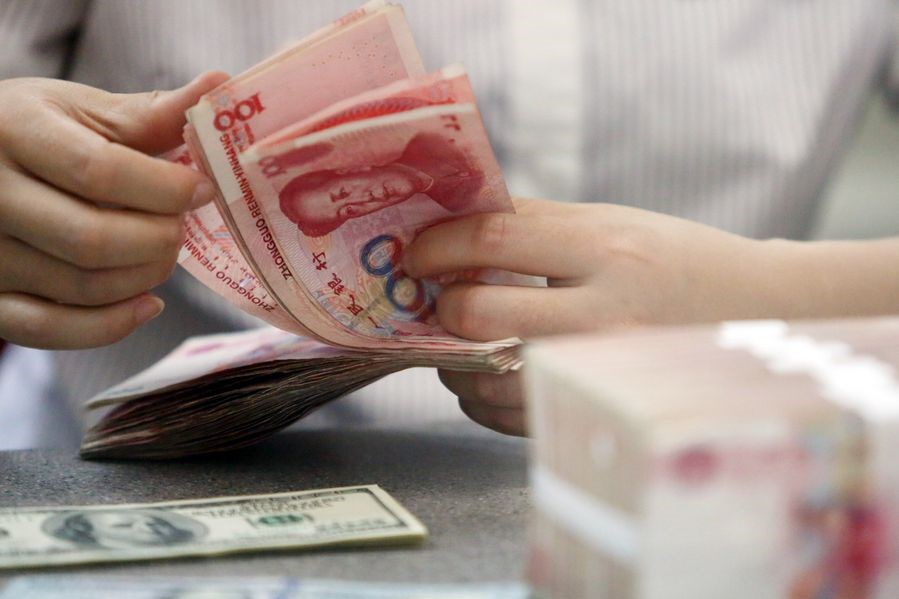
A worker counts Chinese currency renminbi at a bank in Linyi, East China's Shandong province. [Photo/Xinhua]
BEIJING - China is poised to implement a clear-cut fiscal policy in 2025 that aims to intensify countercyclical regulation and will be "highly proactive," officials said Friday.
As part of the policy, the size of China's fiscal deficit will increase significantly in 2025, Vice-Minister of Finance Liao Min told a press conference.
Noting that the fiscal deficit ratio will be increased in 2025, Liao said considering the increasing size of China's GDP, the total fiscal expenditure will further be expanded, and countercyclical adjustment efforts will also be stepped up to provide solid support for the sustained recovery of the economy.
The policy also takes fiscal sustainability in the medium and long term into consideration, so that it is prudent at the same time. Specific policy measures must go through statutory procedures before being launched, Liao said.
The ministry will increase transfer payments to local governments to enhance their fiscal capacity, while allocating a larger scale of government bonds, including ultra-long special treasury bonds and local government special bonds, the vice minister said.
Specifically, efforts will focus on expanding the scope of special bonds in the country's property market to drive effective demand, said Lin Zechang, head of the comprehensive department of the ministry.
Within the limits of newly issued special bond quotas for 2025, local authorities will be able to allocate funds as needed for special bond projects aimed at land reserves and the acquisition of existing commercial housing for affordable housing purposes, Lin said.
As policy measures take effect, multiple indicators of the property market have shown improvement. In December 2024, the transaction area of new commercial housing in 100 major cities nationwide increased by some 17 percent month on month and 18 percent year on year, Lin said.
"We believe that as policy measures continue to strengthen and a new model for real estate development is being developed, the market will further stabilize and improve," Lin said.
Emphasizing the optimization of the country's fiscal expenditure structure in 2025, Liao said that the focus will be more on improving livelihoods and stimulating consumption.
Accordingly, the ministry will provide greater support for stabilizing employment and boosting consumption by increasing income, strengthening the social security system and developing new consumption sectors.
Regarding employment, Lin said that the ministry will further support key sectors such as the cultural and tourism industry, other modern service industries, and foreign trade.
While promising more investment in stabilizing employment and ensuring people's livelihoods, Lin said that efforts will be made to further promote employment in small and micro businesses.
Looking ahead, Liao said the ministry will deepen reforms in the fiscal and tax systems and continue to strengthen efforts to prevent and resolve risks in key sectors.
Given the new situations and challenges in both domestic and international environments, there is ample fiscal policy space and a variety of tools available, Liao added, stressing that further measures will be gradually unveiled to provide robust support for economic and social development.